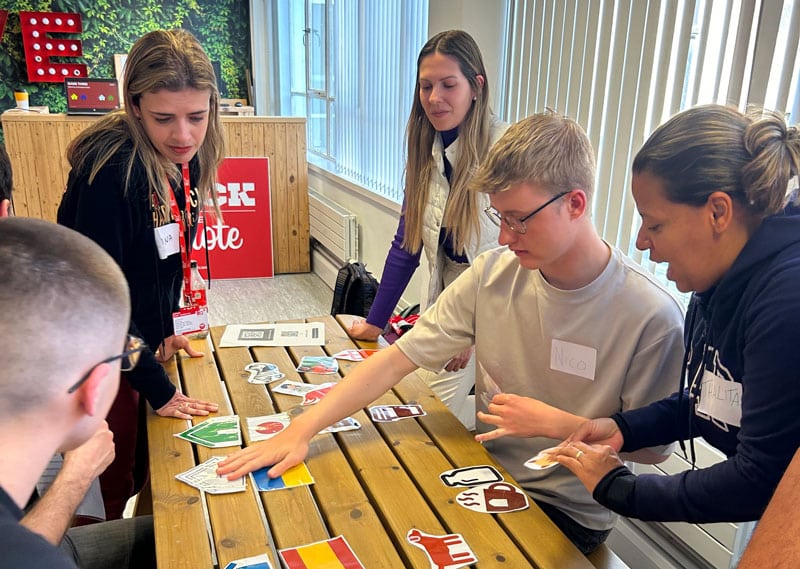Language travel sector leaders call for a focus on value amid persistent discount pressure
- Price discounting is widespread across the language travel sector
- A recent industry forum concluded that there is a need for more coordination among schools and agents, and for better guidance around sustainable pricing strategies across the sector
- Above all, schools are encouraged to counter pricing pressure by emphasising value, and through market segmentation, student services, and supports for staff and students
A June 2025 forum convened by ALTO (Association of Language Travel Organisations) confirmed that price discounting in language travel is widespread and "driven primarily by competitor pressure rather than genuine consumer demand." Recent polling by the association finds that 70% of both school and agents feel pressured to discount "always" or "often," with "competitor actions" noted as the primary source of pressure on pricing.
The discussion during the forum also highlighted that while discounting may offer a short-term boost when opening new markets or coping with seasonal downturns, the long-term risks are severe. "Clients expect a lot more for a lot less," said one participant. "The long-term risk is that it’s a very slippery slope to go down and once you’re at the bottom, it’s hard to climb back up.”
In fact, it is that prospect of a "race to the bottom" that really focused discussion at the forum, in that reduced margins threaten the sector's sustainability and reputation over the long term, not to mention what they mean to the quality of the student experience across the sector.
Claudio Cesarano is the CEO of Linguista Sprachaufenthalte, a Zurich-based agency. He feels that there is "a bit of a mix" of factors behind the widespread discounting in the industry today. "At the end we're selling a product like any other industry and we've all missed out a bit on giving it enough value. If there is enough value then there is no discounting." He puts the practice down to a number of factors, including larger chains that are effectively buying market share through discounting, and, in the process, putting pressure on small operators to adapt. He also sees discounting in some hyper-competitive markets where agencies are compete with each other for a booking.
The practice is so widespread that when it comes to discounts, "I get it without asking. The genie is out of the bottle."
Participants at the ALTO forum advanced a number of strategies for responding to that persistent pressure on pricing for language courses, including:
- Investing in staff training
- Developing innovative programmes for specific market niches
- Enhancing communications throughout the student journey and/or investing in student support services
Beyond that, the discussion stressed the importance of a more strategic and limited use of discounts – with specific time limits in place – and never as the default pricing option.
One school's response
Leanne Linacre, the director of LILA College in Liverpool, has seen that pricing pressure firsthand. "The pressure to discount has definitely increased over the last few years," she says. But she finds that it can also be driven by the customer in some markets, especially in cases where there is a culture of bargaining or expecting discounts or where the student's home currency is more volatile. "Currency fluctuations have a huge impact," she adds.
So too does the broader shift toward the junior market in many language learning destinations. "Juniors are coming for less time," says Ms Linacre, "and so families are looking for a lower price; sometimes even scaling back on excursions or taking things out of a package to get the price down."
For its part, LILA is responding by building additional value into its programmes, and by being strategic in targeting specific high-value niches. For example, LILA has introduced A level courses and university foundation programmes in order to better build its enrolment outside of the peak summer season and to boost the average stay per student. "It was a lot of hard work and a lot of time to get it off the ground," Linacre says. "But that gave us time to build out our agent networks and to begin to build the enrolment base."

In addition to that careful segmentation, LILA has also invested in expanding student supports. The school has introduced the Progression Platform, for example, as an in-person eight-module course for all levels of language learner. Students are offered Progression classes outside of their timetabled classes. This enriched programme is free of charge and focuses on skills – such as team building or communications – that students need to be successful outside of the language classroom, whether at university, at work, or in life.
"The students love it," says Ms Linacre. "The challenge is letting the agents know about it in a way that they can understand and use to support sales but when they see what we're the sort of school that goes the extra mile, it gives them the confidence to recommend us."
The Liverpool language school has also invested in a new student lounge space – The Park – which features docking stations and other supports for digital nomads. The school is leveraging that space in a new Digital Nomad Package, which is specifically designed for students who want to improve their English skills while working remotely and networking internationally.

Segmentation, niche programmes, new services, and better student supports. In the view of the delegates at the ALTO forum, these are all effective strategies for countering downward pressure on prices. The forum also called for better collaboration between schools and agents, and for peak bodies in the sector to play a more active role in bring forward guidelines and advancing best practices to better stabilise pricing in the sector.
For additional background, please see:
















